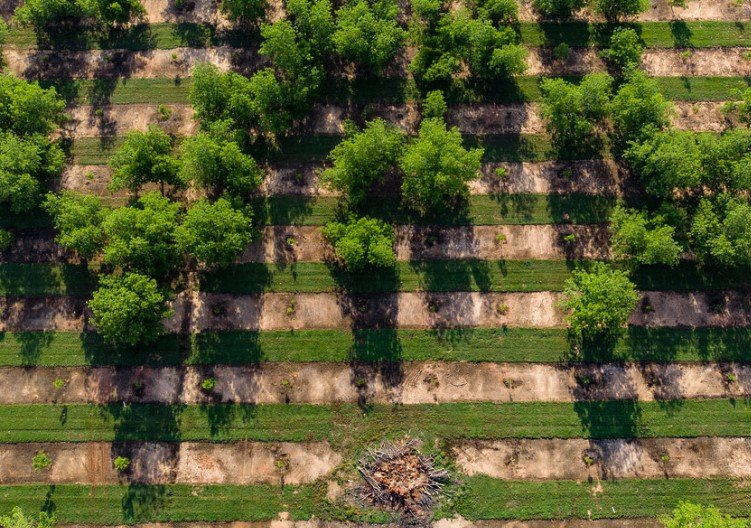For farmers in Central Georgia, trade policies aren’t just political headlines—they determine their livelihoods. With President Donald Trump’s new 10% tariff on Chinese imports, many are bracing for a response from Beijing. And if history is any indicator, the consequences could be painful.
Pecan Farmers Still Reeling from Previous Trade Disruptions
Lawton Pearson, a pecan farmer in Crawford County, remembers the last time the U.S. and China went toe-to-toe over tariffs. The aftermath was swift and brutal.
“It was immediate. In 2018, we went from shipping hundreds of container loads to nothing overnight because there was a 52% increase,” Pearson recalled.
That dramatic shift forced farmers like him to rethink their entire business models. Exporting to China, once a lucrative path, suddenly became unsustainable.
“We had to pivot and try to find domestic markets for all our pecans. The tariffs destroyed the market overnight and destroyed our pricing overnight,” Pearson explained.
Now, with a fresh round of U.S. tariffs on Chinese goods, many fear a repeat scenario—only this time, the economic climate is even more fragile.

Potential Repercussions for Georgia’s Agricultural Sector
China has long been a major buyer of American agricultural products, especially pecans. Retaliatory tariffs could mean steep challenges for farmers trying to sell their crops internationally.
“We’re at 52% right now. I don’t know what’s about to come, but it’s probably more,” Pearson said, referring to the existing tariffs on pecans.
The biggest concern? Losing even more ground in an already uncertain market. If China hikes tariffs again, it could price U.S. pecans out of the market, giving other countries a competitive edge.
The Supply Chain Dilemma: Higher Costs at Home
Beyond export troubles, farmers are also facing rising costs at home. Many rely on equipment, fertilizers, and materials that come from China.
“For us, it’s going to be supply-side problems. Everything we buy now from China, or that has a tariff on it, is going to be more expensive. So it’s going to hurt us coming and going,” Pearson said.
That double impact—lower international demand and higher domestic costs—leaves many in the agriculture industry in a difficult spot.
Economic Experts Weigh In on Trade Wars
Economists have long warned that trade wars can have unintended consequences, and Greg George, an economist at Middle Georgia State, sees the same risks in this situation.
“Trade helps an economy, restricting trade harms an economy,” George stated.
For American consumers, tariffs often translate to higher prices.
“By having a trade war now, we can’t buy things from China that we are accustomed to buying cheaply. China isn’t buying our stuff, which hurts our businesses. Now, we’re in this bad situation where the economy is sluggish on both sides,” George said.
Trade tensions have a way of trickling down from high-level policy discussions to everyday transactions. Whether it’s a farmer selling pecans or a consumer shopping for goods, the effects are tangible.
A Waiting Game for Farmers and Businesses
As the situation unfolds, farmers in Central Georgia can do little more than wait and hope for a resolution. In the meantime, they’re strategizing—seeking out new markets, adjusting supply chains, and bracing for potential financial strain.
The uncertainty looms large. And for those whose livelihoods depend on steady, reliable trade, these policies are more than just political maneuvering—they’re the difference between a good year and a devastating one.
